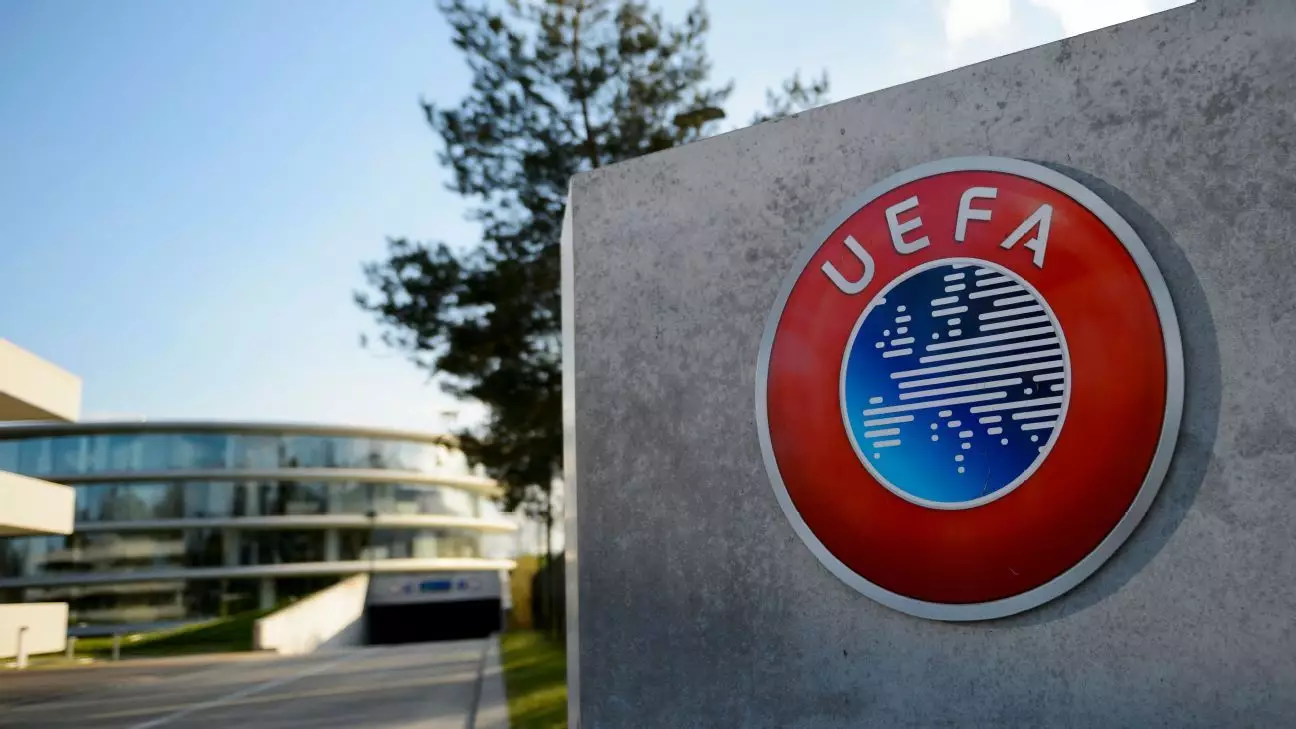Recent developments within European football highlight an industry at crossroads, where financial discipline is increasingly enforced with unrelenting severity. UEFA’s record-breaking €31 million fine against Chelsea signals a paradigm shift in how clubs are held accountable for their financial conduct. The hefty penalty not only underscores the authority UEFA wields but also sends a clear message to clubs: reckless spending and financial mismanagement will no longer be tolerated. It’s a bold statement that champions financial stability over fleeting success, forcing clubs to recalibrate their strategies both on and off the pitch.
Chelsea’s fine surpasses previous records, revealing a new era of financial policing. The club, owned by Todd Boehly’s consortium since 2022, has been notorious for its lavish spending spree, often pushing the boundaries of permissible expenditures. The sanctions stem from violations of UEFA’s monitoring rules, specifically their failure to approach a break-even point and exceeding spending limits on squad costs such as transfers and wages. This level of scrutiny essentially disrupts clubs’ traditional spending habits, emphasizing long-term financial health as a prerequisite for European competition.
Barcelona’s €15 million penalty further complicates the narrative, centering on the Catalan giants’ significant losses and their potential to jeopardize their European ambitions. UEFA’s complex evaluation process aims to foster sustainability, especially vital for clubs with historic legacies but growing financial vulnerabilities. These sanctions serve as a wake-up call for clubs that have, for years, skirted financial regulations in pursuit of titles and trophies. The message is unequivocal: football’s financial ecosystem must evolve into one rooted in accountability, transparency, and fiscal prudence.
The Impact of Financial Sanctions on Club Strategies and Industry Stability
The repercussions of these fines extend well beyond immediate financial penalties. They are catalysts for a fundamental transformation in club management and strategic planning. Historically, clubs have often prioritized immediate sporting success, sometimes at the expense of sound financial practices. UEFA’s enforcement mechanisms — including future conditional fines and penalties for missing financial targets — aim to shift this mindset toward sustainability.
Chelsea’s ongoing investigation into their sale of hotel assets within their corporate structure illustrates how financial irregularities can threaten club stability. While the club insists its finances are on an “upward trajectory,” the scrutiny surrounding its transactions raises questions about transparency and ethics in modern football finance. This scrutiny comes amid a broader backdrop of increased ownership by wealthy individuals and corporations willing to invest heavily, risking financial imbalance and instability.
The overarching goal appears to be creating a more equitable and sustainable league system. Clubs that have historically relied on lavish spending to dominate are now faced with constraints that could reshape their competitive landscape. The threat of future fines for missing financial targets compels clubs to adopt more disciplined approaches, prioritizing long-term viability over short-term glory. For owners like Boehly, whose spending has already caused controversy, this shift might require reevaluation of their strategies if they wish to maintain European competitiveness without risking financial ruin.
Furthermore, UEFA’s enforcement promotes a culture of transparency, transparency that is desperately needed in an era where the line between genuine financial health and creative accounting can often be blurred. The penalties serve as a deterrent against manipulative practices that undermine the integrity of competitions, ensuring that clubs are motivated to operate within sustainable parameters.
Repercussions and Future Outlook for European Clubs
The broader implications of these sanctions are profound. For clubs like Chelsea and Barcelona, the punitive measures threaten to shape their future seasons, especially if they fail to meet UEFA’s financial criteria. The specter of future fines creates a climate where prudent financial management becomes as crucial as sporting performance. It also raises questions about the balance of power between wealthy owners eager to fund multimillion-euro transfers and the regulators tasked with maintaining financial fairness.
For the wider football industry, these penalties underscore an industry in transition — from a reckless pursuit of success to a more disciplined, sustainable model. Regulatory bodies like UEFA are signaling their readiness to intervene decisively when clubs jeopardize the financial health of the sport. This stance could usher in a new era characterized by stricter oversight, more transparent financial disclosures, and a collective effort to eliminate practices that threaten the integrity of European competitions.
In this evolving landscape, clubs will inevitably face tough choices. Will they adapt their spending habits to meet UEFA’s rigorous standards, or will financial pressures force some to retreat from the global stage? The coming seasons will be pivotal, as clubs strive to balance competitiveness with financial responsibility. One thing is certain: UEFA’s aggressive stance signifies a transformational phase in European football, where financial discipline will almost certainly become a key ingredient for sustained success.

